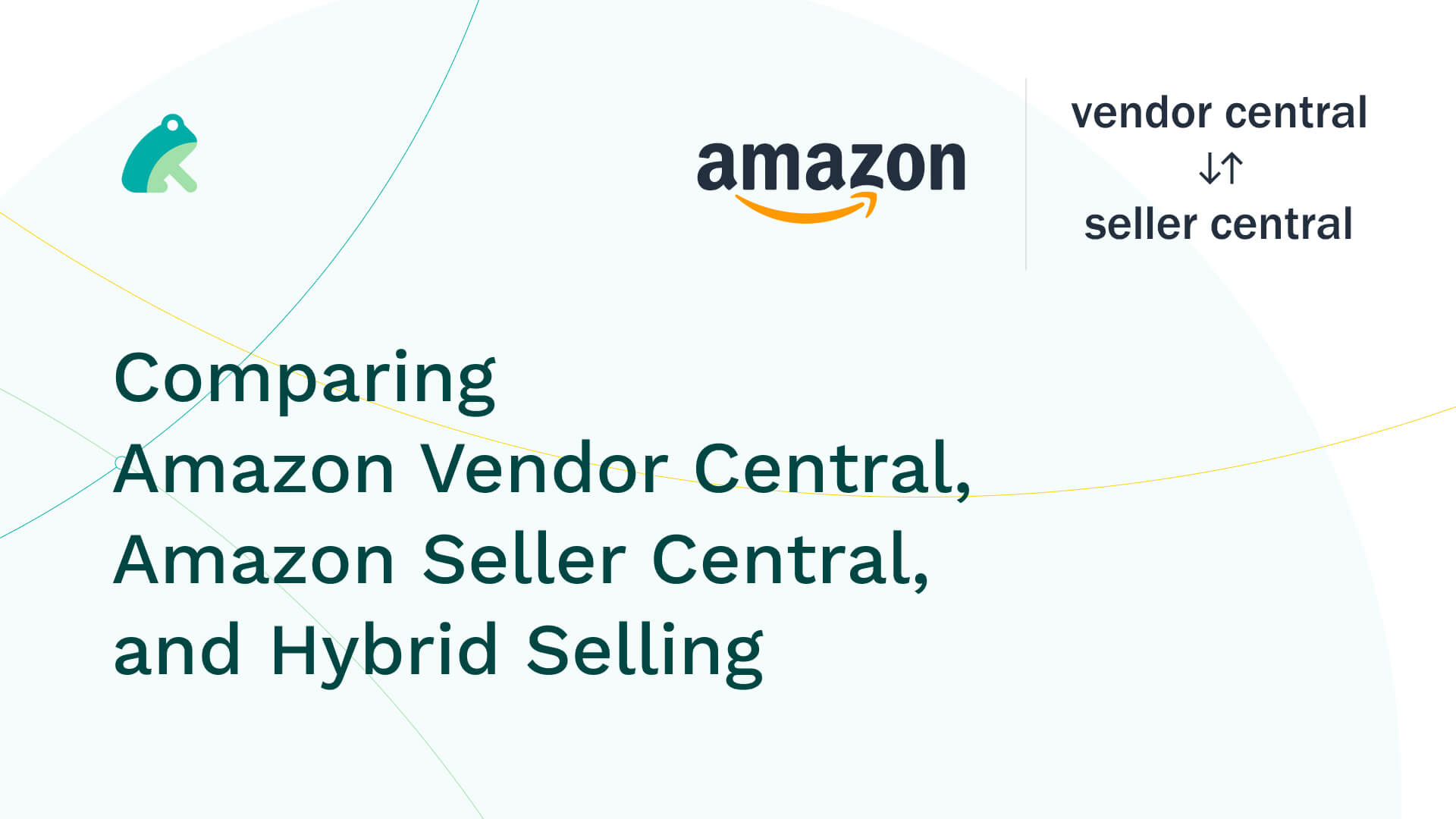Comparing Amazon Vendor Central, Amazon Seller Central, and Hybrid Selling
February 8, 2026
Amazon Vendor Central and Amazon Seller Central are two different programs offered by Amazon for businesses to sell their products on the platform. While both programs allow businesses to sell their products on Amazon, there are significant differences between the two that businesses need to understand before deciding which program to use, and whether it’s good to consider a hybrid of the two.

Amazon Vendor Central
Amazon Vendor Central is an invitation-only program that allows businesses to sell their products to Amazon as a wholesaler. Amazon then becomes the seller of the products, and the business acts as a supplier. As a vendor, the business sells its products in bulk to Amazon at a wholesale price, and Amazon handles the pricing, marketing, and sales of the products. Amazon also takes care of the shipping, customer service, and returns.
Benefits of Amazon Vendor Central
- Amazon handles the pricing, marketing, and sales of the products, which saves the business time and resources.
- The business has access to Amazon's large customer base and can sell its products in bulk.
- Amazon handles the shipping, customer service, and returns, which reduces the business' workload.
Disadvantages of Amazon Vendor Central
- Amazon sets the prices of the products, and the business has no control over them.
- The business has to sell its products in bulk, which may not be suitable for small businesses.
- Amazon has strict guidelines that businesses have to follow, and failure to comply can lead to termination of the vendor account.
Amazon Seller Central
Amazon Seller Central is an open platform that allows businesses of all sizes to sell their products on Amazon directly. As a seller, the business sets the prices of its products, handles the marketing, manages the inventory, shipping, and returns. The seller is responsible for the customer service and has to deal with any issues related to the products.
Benefits of Amazon Seller Central
- The business has control over the pricing, marketing, and sales of its products.
- The business can sell its products in any quantity, which is suitable for small businesses.
- The business can manage the inventory, shipping, and returns, which gives it more control over the sales process.
Disadvantages of Amazon Seller Central
- The business has to handle the customer service and deal with any issues related to the products.
- The business has to invest time and resources in marketing, pricing, and managing the products.
- The competition is high and it can be challenging for new businesses to establish themselves on the platform.
Hybrid Sellers
Hybrid sellers are businesses that use both Amazon Vendor Central and Amazon Seller Central to sell their products on the platform. Hybrid sellers can sell their products in bulk to Amazon as a vendor, and also sell their products directly to customers as a seller. This allows the business to reach a larger customer base and have more control over the sales process.
Benefits of Hybrid Selling
- The business can reach a larger customer base by selling in bulk to Amazon and selling directly to customers.
- The business has more control over the sales process by managing the pricing, marketing, and customer service of its products.
- The business can take advantage of the benefits of both programs, such as the large customer base of Amazon and the control over the sales process.
Disadvantages of Hybrid Selling
- The business has to invest time and resources in managing both the vendor and seller accounts.
- The business has to comply with the guidelines of both programs, which can be challenging.
- The competition is high and it can be challenging to establish the business on the platform.
In conclusion, Amazon Vendor Central, Amazon Seller Central, and Hybrid Selling are three different ways that businesses can sell their products on Amazon. Each program has its benefits and drawbacks, and businesses need to understand the differences between the programs before deciding which one to use. While Amazon Vendor Central is suitable for businesses that want Amazon to handle the sales process, Amazon Seller Central is better for businesses that want to have more control over the sales process. Hybrid Selling is suitable for businesses that want to take advantage of the benefits of both programs.
InsightLeap is the ideal analytics tool to help businesses make the best decision when it comes to selling on Amazon, as it provides in-depth insights into the different programs and helps businesses understand the differences between them.